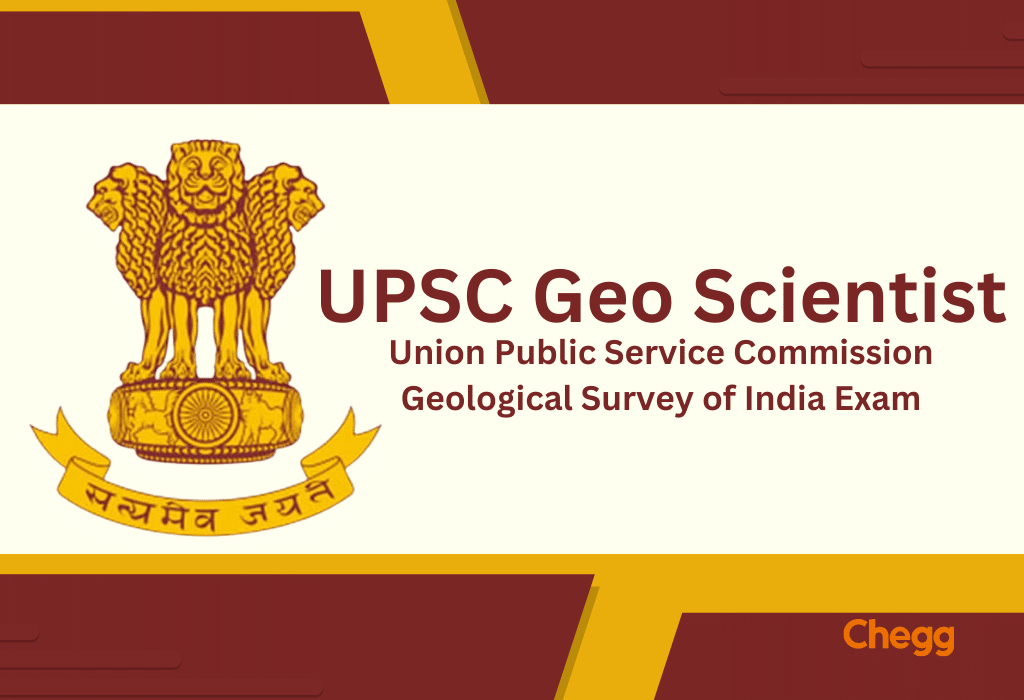The extensive and fascinating realm of earth sciences awaits! The UPSC Geo-Scientist Exam may be your best career gateway if you are an explorer searching for the secrets and techniques hidden inside our planet’s rocks, fossils, and landscapes. Let’s delve into the critical points of this prestigious examination and discover your viable direction for becoming a geological officer in India. We are discussing Your Path to Earth’s Secrets: Decoding the UPSC Geo-Scientist Exam.
The Union Public Service Commission (UPSC) conducts the Combined Geo-Scientist (Preliminary) and Main Examinations to recruit individuals for different geological positions under several ministries and departments of the Indian government. These roles contain several tasks, from mineral exploration and help administration to disaster mitigation and environmental protection.
Here we are talking about Your Path to Earth’s Secrets: Decoding the UPSC Geo-Scientist Exam:

Eligibility Criteria
- Be an Indian citizen or meet specific requirements for other eligible nationalities.
- The age limit generally lies between 21 and 32 years old (as of the notification date).
- Age relaxation is also applicable
- Additional criteria may apply based on specific services and categories.
- Must possess a bachelor’s degree in geology, physics, chemistry, mathematics, or related fields.
Exam Pattern
The Exam consists of two stages
- Preliminary Examination (objective exam) => General Studies & Earth Science.
- Main Examination (written exam) =>geology, physics, chemistry, & optional subjects.
Important Dates
- Notification release-> February-March.
- Application window-> April- May
- Preliminary Exam-> June-July.
- Main Exam-> January-February.
How to prepare for the UPSC Geoscientist
- Understand the syllabus and examination pattern.
It is essential to have a clear concept regarding “what to study.” & “How it will be asked?”
- Create a study plan.
Once you have the perfect materials, you must create a study plan. This will assist you in remaining on track and making sure that you cover all of the crucial topics. Your study layout has to be realistic and achievable, and it is necessary to plan practical time for every analysis of a new topic and revise what you have already learned.
- Self-Study or Coaching
The most common questions in students’ minds are how to prepare for the UPSC exam and whether to take coaching. The best decision will be a combination of both. Now, UPSC is not something you have included in your school curriculum. Therefore, coaching will guide your preparation by providing relevant study materials and tests. Then, you can solve exercises and review materials to study independently.
- Work on Basics
Developing fundamental concepts should be prioritized before moving on to UPSC exam-level questions. So, focus on studying basic concepts and practice easy questions first. Then, gradually move on to higher-level questions.
- Practice lots of questions.
After completing a topic, practice asking as many questions as possible. Move from lower to higher-difficulty questions. Reviewing the concepts a few times through practice can help you prepare for the UPSC exam.
- Analysis of test
A practice test is a simulation of the actual test. So, as the exam approaches, taking practice tests regularly should be a part of your UPSC preparation strategy. Additionally, it is equally important to analyze your simulations and identify your weaknesses.
- Practice regularly
One of the best approaches to put together for the UPSC examination is to practice answering questions regularly. You can do this by solving exercise papers and taking mock tests. Many unique exercise papers and mock tests are available online and in books.
- Stay motivated.
It is essential to be stable, active, and motivated throughout your preparation.
- Focus on your weak areas.
As you start answering questions, you will perceive your weak areas. Once you know your weak areas, you can focus your research on these topics. You will additionally need to get additional exercise material for these topics.
- Stay up-to-date on current affairs.
The UPSC examination also asks for current affairs. Therefore, it is essential to be updated on modern events. You can use newspapers, observe information channels, and follow information websites and social media pages to be updated.
Syllabus of the UPSC Geoscientist Exam
Preliminary Examination
Paper I: General Studies
- Current events of national and international importance
- History of India and the Indian National Movement
- Indian Constitution, Polity and Governance
- Indian Economy and Social Development
- Science and Technology
- Geography and Environment
- Disaster Management
Paper II: Earth Science
- Geology-> Physical geology, mineralogy, petrology, structural geology, paleontology, stratigraphy, economic geology
- Geophysics-> Solid Earth geophysics, seismology, geomagnetism, exploration geophysics
- Physics-> Mechanics, hydrostatics, optics, heat, magnetism, and electricity
- Chemistry-> Inorganic chemistry, organic chemistry, physical chemistry.
Main Examination
Paper I: Geology
- Physical Geology, Petrology, and Mineralogy
- Structural Geology and Geodynamics
- Paleontology and Stratigraphy
- Economic Geology
- Environmental Geology and Natural Hazards
Paper II: Geophysics
- Solid Earth Geophysics
- Exploration Geophysics
- Earthquake Seismology
Paper III: Chemistry
- Physical Chemistry
- Inorganic Chemistry
- Organic Chemistry
Paper IV: Physics
- Mechanics and Statistical Physics
- Heat and Thermodynamics
- Optics and Electricity and Magnetism
Optional Subjects: You can choose any one of the listed optional subjects. Each has its specific syllabus.
- Geology
- Physics
- Chemistry
- Mathematics
- Botany
- Zoology
- Agriculture
- Animal Husbandry and Veterinary Science
- Geography
- Economics
- Statistics
- Public Administration
- History
- Sociology
- Anthropology
- Psychology
- Political Science
- Literature (English, Hindi, Assamese, Bengali, Gujarati, Kannada, Malayalam, Marathi, Oriya, Punjabi, Sanskrit, Tamil, Telugu, Urdu)
Which books do you prefer for the UPSC GEO SCIENTIST exam
General Studies
- India Since Independence by •> Bipan Chandra, Ramesh Sharma, and K. Lal
- India’s Struggle for Independence by •> Bipan Chandra
- Indian Polity by •> M. Laxmikanth
- Indian Economy by •> Ramesh Singh
- Science & Technology in India by •> Rashmi Bansal
- Environment & Ecology by •> Rajagopalan
Earth Science
- Physical Geology by •> D.K. Nayak
- Mineralogy and Petrology by •> Francis Turner
- Structural Geology by •> M.P. Billings
- Paleontology by •> Tapan K. Bose
- Stratigraphy by •> James Hutton
- Principles of Economic Geology by •> James Gilluly
- Textbook of Geophysics by •> Gerald Tarr
- Solid Earth Geophysics by •> Adam Dziewoński and Marek Radzimowski
- Principles of Physics by •> David Halliday, Robert Resnick, and Jearl Walker
- Concise Inorganic Chemistry by •> J.D. Lee
- Organic Chemistry by •> Morrison and Boyd
Optional Subjects
- Geography for Civil Services Examinations by •> Majid Husain
- Economics for Civil Services Examinations by •> Ramesh Singh
- Geology for Civil Services Examinations by •> Arijeet Banerjee
- Chemistry for Civil Services Examinations by •> P. Bahadur
- Physics for Civil Services Examinations by •> V.K. Agnihotri
Common mistakes to avoid in the UPSC Geo-Scientist Exam
- Not analyzing the examination pattern, questions, and syllabus-> it is essential to make a clear concept regarding the study program and which topics to focus on.
- Not managing time effectively-> Time management is essential in any competitive exam.
- Not practicing regularly-> One of the excellent methods to put together for the UPSC examination is to practice answering questions regularly.
- Making common mistakes-> In any competitive exam, it is crucial to concentrate and keep away from making careless mistakes.
- Not focusing on weak areas-> As you practice answering questions, you will become aware of your weak areas.
FAQs
What Career options are available after clearing the UPSC Geoscientist Exam?
This examination opens doorways to various careers inside the Indian government. You can be a part of departments like the Geological Survey of India, Mineral Exploration Corporation Limited, the Indian Bureau of Mines, and many ministries dealing with earth resources, catastrophe management, and environmental protection. Roles include mineral exploration, aid assessment, disaster mitigation, geological mapping, coverage formulation, and research.
Mention the physical work in the job after clearing the exam?
The physical demand relies on your precise function and posting. Some positions include fieldwork, conducting surveys, collecting samples, and touring far areas, which requires physical health and adaptability. However, different roles are principally desk-based, focusing on analysis, record writing, and coverage development.
Is prior experience in geology essential for this exam?
While a geology history can be advantageous, it is no longer mandatory. Candidates from disciplines like physics, chemistry, or even arithmetic can compete correctly with a firm grasp of quintessential Earth science standards and dedication to preparation.
What are the predicted starting income and professional development options?
The starting income is about ₹50,000–60,000 per month, depending on your chosen branch and location. With experience, promotions, and taking on greater responsibilities, the earnings can extend significantly. Career development presents possibilities for specialization, management roles, and even diplomatic postings in overseas countries.
How do you manage time between prelims and mains for the best preparation?
This duration is fundamental for strengthening your basis and refining your strategy. Focus on revising extensively, practicing answer writing for the mains, trying mock assessments regularly, and inspecting your overall performance to discover improvement areas. Additionally, attend workshops or seminars on your optionally available problem and stay current on present-day Earth sciences trends and applicable authorities’ policies.
Conclusion
In conclusion, the UPSC Geo-Scientist Exam may be difficult, but it offers a beautiful opportunity to learn the secrets and techniques of our planet. You can embark on a well-informed journey by understanding the syllabus’s examination pattern and critical elements. Utilize the best resources, analyze your preparation, and keep away from common mistakes to optimize your probability of success. Remember, regular effort, a focus on each subject, depth of knowledge, and unwavering dedication are critical factors in your journey to attaining your dream profession as a geological officer in India. So, prepare yourself with knowledge, accept the challenge, and step ahead to discover the fascinating world of geosciences!

